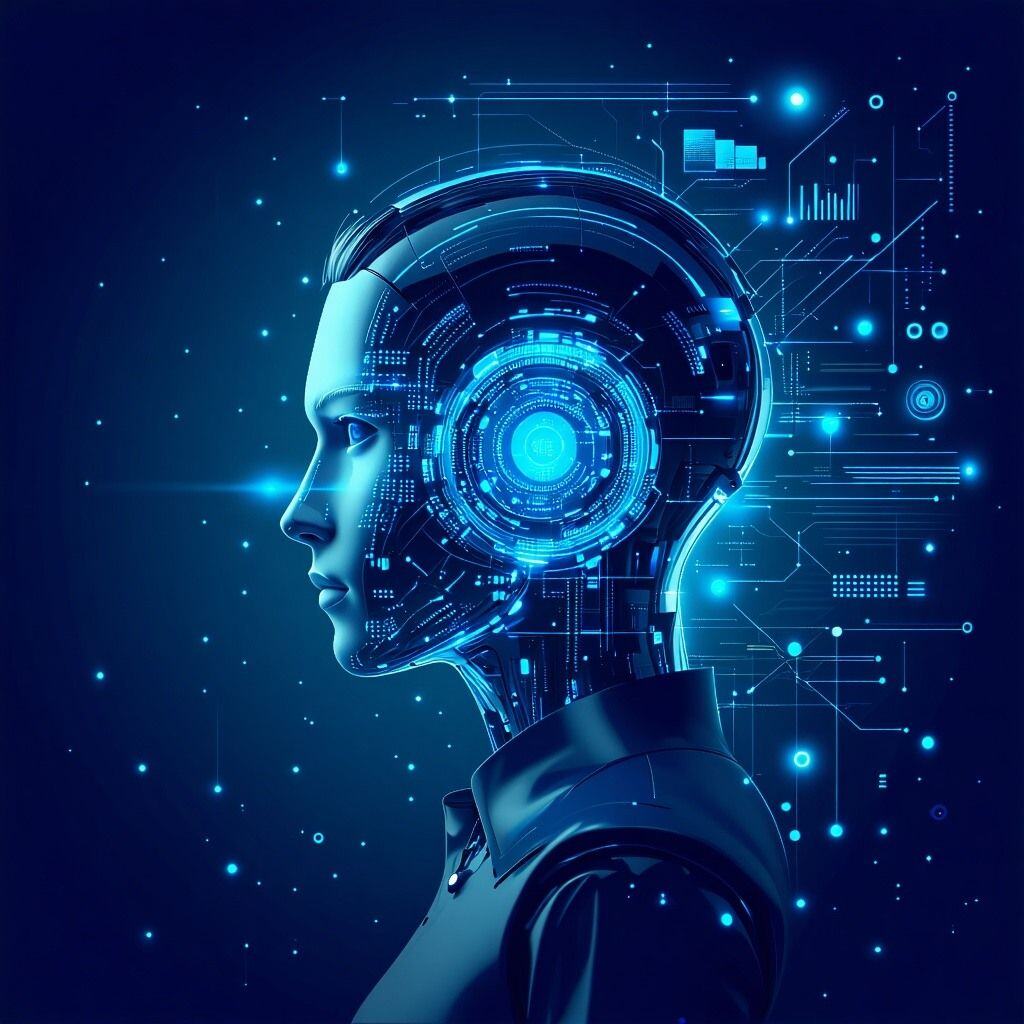From Reactive to Proactive: How Smart AI Agents Streamline Daily Ops
“We’re always putting out fires.”
It’s a phrase Operations Managers know all too well. Whether it’s a last-minute staffing gap, a missed SLA, or a system bottleneck that suddenly halts productivity—reactive firefighting has become the default mode of operations.
But what if your workflows didn’t have to wait for problems to occur?
What if your team had intelligent agents—powered by artificial intelligence—that could anticipate issues, reroute processes, and even take action before the first ticket is logged?
That’s exactly what smart AI agents are designed to do. These aren't just tools—they're autonomous, digital team members. From agents that respond instantly to defined triggers, to agents that monitor systems continuously, AI-driven agents are engineered to keep daily operations running smoothly.
In the evolving landscape of operations, AI agents work by moving your team from reactive problem-solving to proactive process optimization. By embedding intelligence into your workflows, they spot inefficiencies, adjust in real-time, and even act independently to resolve issues before they escalate.
This proactive model is reshaping how modern operations teams function—turning daily chaos into controlled, streamlined performance.
Why Constant Firefighting Is a Symptom—Not the Root Problem

Daily firefighting is not a failure of individual effort—it’s a red flag from your system. It signals that your current operations lack the structure and tools to detect, anticipate, and neutralise issues before they erupt. For many enterprise Operations Managers, this looks like:
-
Jumping from one urgent task to the next
-
Lacking the bandwidth to drive continuous improvement
-
Struggling to make space for long-term, strategic thinking
This constant state of reactivity isn’t just inefficient—it’s corrosive. It fosters a culture where teams are always “catching up,” leading to morale drops, decision fatigue, and burnout.
But today’s AI systems are changing the equation.
Thanks to major breakthroughs in machine learning, conversational AI, and large language models, we now have agents that don’t just respond—they predict, prioritize, and act on your behalf. These intelligent systems can process massive streams of operational data in real time, identify risks, and handle specific tasks, such as support tickets, optimising logistics workflows, or even contributing to software development projects.
In modern enterprises, these agents operate quietly in the background—some as reflex agents that instantly respond to predefined triggers, others leveraging advanced algorithms and natural language interfaces to handle complex decision-making. Whether it’s a voice-activated support agent or an internal dashboard bot flagging anomalies, these tools are not just automating—they're augmenting your team’s capability to think ahead.
Crucially, this isn’t automation for automation’s sake. Today’s AI is grounded in responsible AI principles—ensuring that the decisions these systems make are transparent, explainable, ethical, and aligned with enterprise objectives. That means you can trust AI not only to accelerate operations, but to do so in a way that reflects your values and protects your stakeholders.
The result? A shift from chaos to clarity.
Instead of constantly reacting to the latest fire drill, your team can refocus on strategy, innovation, and growth—because your AI agents are handling the noise.
In short, intelligent agents powered by cutting-edge AI technologies aren’t just helping you move faster—they’re transforming how modern enterprises operate. They’re turning firefighting into foresight. And that’s the future of scalable, resilient operations.
Enter Smart AI Agents: Your Always-On Ops Partner
By shifting your operations from reactive to proactive, smart AI agents do more than just lighten the load—they redefine how work gets done across your organisation. These systems use real-time data, contextual awareness, and knowledge graphs to anticipate needs, resolve issues, and execute tasks on behalf of your team—before problems ever reach the surface.
These aren’t glorified alert systems or static chatbots. They’re dynamic, decision-making entities powered by advanced machine learning, large language models, and other enterprise-grade AI technologies. Think of them as digital teammates—AI agents that operate continuously, adapt intelligently, and deliver value at scale.
They excel in the high-variability, high-stakes environments where traditional rule-based automation often breaks down. Why? Because smart agents don’t just follow instructions—they learn from patterns, pivot when circumstances shift, and autonomously intervene to optimize outcomes.
Imagine this:
-
A sudden spike in call volume? The AI detects the pattern, forecasts the impact, and scales your conversational AI workforce in real time—avoiding SLA breaches, long queues, and customer frustration.
-
A recurring error in a workflow? Instead of logging another ticket, the agent traces the root cause and automatically refactors the process—eliminating the issue before humans even notice.
-
A subtle shift in customer sentiment across multiple channels? The system flags the trend, analyzes the drivers, and launches a targeted playbook—escalating critical tickets, rerouting negative feedback, and adjusting tone across support channels.
-
An engineering bottleneck in your CI/CD pipeline? A specialized agent flags the dependency, triages the backlog, and even writes draft pull requests or test cases—handling software development tasks on your team’s behalf.
Behind the scenes, these agents are trained on operational data, business logic, and organizational goals. Whether it’s a support automation agent, a workflow optimization agent, or other agents tuned to finance, logistics, or product delivery—they're purpose-built to tackle complexity.
And they’re accountable. Every action is logged, every decision auditable, and every outcome tied to KPIs. You’re not just getting automation—you’re gaining a layer of always-on operational intelligence that learns, improves, and scales with your business.
This is more than just a tech upgrade—it’s a fundamental shift in how enterprises approach resilience, efficiency, and innovation. With AI agents managing the tactical, your human teams finally have the space to focus on what truly moves the business forward: strategy, creativity, and growth.
Autonomous Action: Not Just Alerts—Action

Unlike traditional monitoring tools that simply flag problems and wait for human input, smart AI agents go far beyond passive alerts. They’re built with advanced agent capabilities that allow them to take autonomous action—turning reactive fixes into proactive operations.
What does that look like in practice?
-
Triggering complex workflows automatically based on real-time data and predefined conditions
-
Reallocating resources—like reassigning agents, scaling chatbots, or adjusting schedules—to meet unexpected spikes in demand
-
Executing low-level and repetitive tasks independently, with minimal human intervention, freeing up hours of manual work each day
This level of automation and decision-making is more advanced than what traditional chatbots or scripts can handle. These AI agents can process large volumes of data, identify patterns, and act in real-time—all while being governed by human oversight to ensure accuracy, compliance, and control.
For companies striving to improve operational resilience and agility, this means fewer delays, fewer errors, and significantly more time to focus on what truly matters: long-term improvements, strategic transformation, and scalable growth.
More importantly, these agents don’t operate in a black box. They surface meaningful insights—from process inefficiencies to customer sentiment—that help your team act smarter and faster. And when a situation requires nuance or judgment, agents can escalate it to your internal experts, ensuring humans stay in the loop where it matters most.
The result? A powerful partnership between automation and your people—where AI handles the complexity, and your team leads with vision.
Real-World Impact for Operations Leaders

Implementing AI agents isn’t just about adopting new technology—it’s about a fundamental shift in how your operations function. Moving from reactive, last-minute responses to a proactive operations model is not just a choice, it’s an evolution that positions your team for sustained success.
Here’s what proactive ops looks like in practice:
✅ Reduced downtime and disruption: With natural language processing (NLP), AI agents can handle complex customer inquiries, triage cases, and address issues before they even escalate—minimizing system interruptions and keeping your operations running smoothly.
✅ Fewer escalations and fire drills: Thanks to advanced skills built into each AI agent, they can manage routine tasks autonomously, allowing your team to focus on high-priority, strategic challenges. The result? Less firefighting and more long-term planning.
✅ Improved SLAs and resource planning: AI agents analyze historical data and optimize scheduling in planning mode, helping allocate the right resources at the right time, ensuring optimal AI agent performance and meeting customer expectations with precision.
✅ Time reclaimed for continuous improvement: With a rich knowledge base powering each interaction, these agents continuously learn and adapt, improving efficiency and reducing the manual effort required for maintenance. This gives your team the bandwidth to focus on innovation and process optimization.
Smart AI agents act as efficiency multipliers, amplifying the skills of your team rather than replacing them. By automating routine tasks, managing large volumes of data, and acting on insights in real-time, these agents help your team focus on creating value, driving growth, and achieving strategic goals.
Ready to Build a Proactive Ops Function?
If you're tired of operating in reaction mode and want to break free from the constant firefighting, now is the perfect time to take control. The future of operations is proactive, and AI agents are the key to modernising your workflows, scaling smarter, and setting your team up for success.
AI agents are built with a planning module that enables seamless integration with your current systems. They bring domain expertise tailored to your industry, ensuring that every action taken is in line with your specific operational needs. These agents are not one-size-fits-all—they are customised to work with your APIs, connecting seamlessly to your existing software infrastructure for maximum impact.
Imagine having a virtual assistant capable of performing complex tasks like error correction and real-time decision-making, while also empowering your developers to integrate these agents into your existing workflows with ease. The combination of AI’s intelligent decision-making and human developer expertise in software development leads to smoother transitions, more adaptable systems, and better overall performance.
The result? A truly scalable solution that doesn’t just work for your company today but continues to evolve over time. AI agents learn from each interaction, making them more effective month after month, and providing you with actionable insights to drive continuous improvement.
👉 Download the AI Buyer Guide for Ops Teams
It’s your step-by-step playbook to choosing the right AI agents, avoiding common pitfalls in implementation, and building a proactive operations strategy that scales. Whether you’re a developer or an ops leader, this guide will give you the clarity and direction to modernise your workflows and take your operations to the next level.
You May Also Like
These Related Stories

The Future of Shopping: Autonomous Store Technology Unveiled




No Comments Yet
Let us know what you think